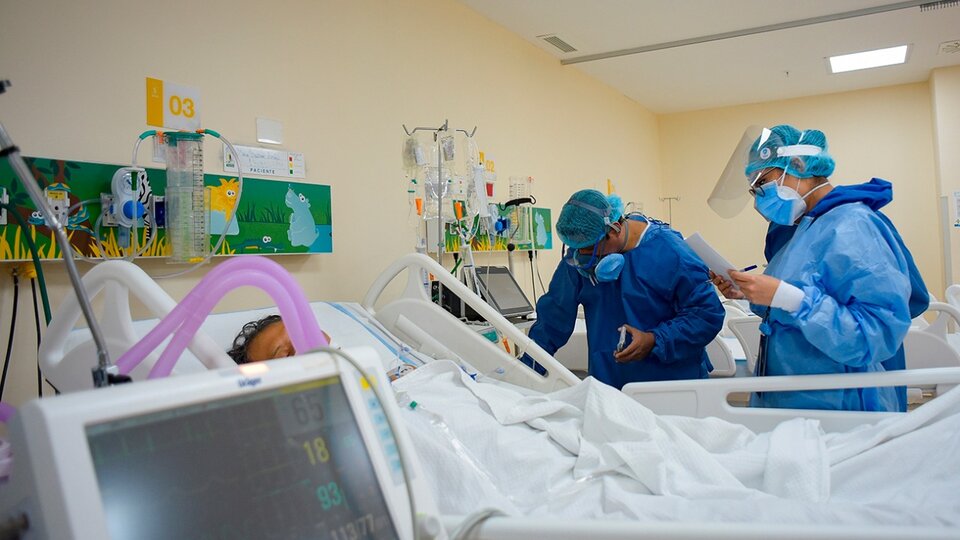
[ad_1]
The Ecuadorian government has announced that it will cancel the state of emergency applied from December 21 for thirty days to stop the growth of the coronavirus. In this way, President Lenín Moreno complied with a decision of the Constitutional Court which obliged him to adopt further measures. The Ecuadorian court considered that the president had based the state of emergency “on a possible future risk and not present, without sufficient, clear and precise information”. In a televised message, Moreno warned that intensive care units (ICUs) at most hospitals in major cities across the country are “at the limit” of their capacity.
“It is up to us to respect the decision of the Constitutional Court”, said Lenin Moreno in the national chain. Despite this, “we will continue to apply the measures that are within our reach” to prevent the growth of the coronavirus in the country, the president warned after assuring that the only objective of his administration was to “save lives”. Moreno warned that “the ICUs are at the limit” and that an increase in cases is expected in January as a “natural consequence” of the Christmas and New Year holidays..
The Ecuadorian president said the government had an “emergency plan” to deal with an unusual rise in infections, which he did not detail. Moreno called on municipalities and other local governments to align with the warnings on pandemic prevention and protection measures that are typically issued by the Emergency Operations Committee (COE), which deals with the health situation in the country.
The Head of State acknowledged that “the pandemic had not been overcome” and for this reason at present “Raising awareness among citizens is more important than managing authorities” deal with the pandemic. “I come to all of you to act of your own free will and with responsibility”, the president questioned his compatriots and recalled that he had already conducted negotiations with the pharmaceutical company Pfizer to buy two million vaccines to support the vaccination plan in the country.
Moreno has insisted that some 50,000 doses will arrive in the country in January and the rest will arrive in late March. At the same time, the president said he had started talks with the same US pharmaceutical company to negotiate two million more doses. “This is good news,” he said, while claiming the “co-responsibility” of the population to maintain individual care during the duration of the vaccination process.
The Constitutional Court had assured that the decree on “the state of emergency in the event of public calamity” in the face of Christmas crowds and the possible circulation of a new strain of the coronavirus that has emerged in the UK “It did not meet constitutional standards.” Ecuador’s highest legal body has ruled that emergency states only apply when the situation causing them cannot be resolved in the ordinary way.
In this context, the Court noted that “a regime designed to be temporary and exceptional cannot be perpetuated as long as the pandemic and its consequences lasts”. In addition, he recalled that he had previously warned that “he will not admit a new statement on the same facts which established public calamity on two previous occasions with their respective renewals”. Lenín Moreno declared a state of emergency on March 16 that lasted until September, despite the fact that the Constitutional Court had already warned him that it would not admit such exceptional measures.
In a statement, the highest court said that “it is not indifferent to the consequences of the response capacity of the public health system if the trend towards hospitalization continues to grow.” However, “it is not for him to determine what public policy measures are necessary to deal with the consequences of the pandemic, but he must focus on the justification and the reasons put forward” in the decree which allowed the state to ’emergency. The South American nation has 214,513 coronavirus cases and 14,059 deaths according to the latest official figures.
.
[ad_2]
Source link
 Naaju Breaking News, Live Updates, Latest Headlines, Viral News, Top Stories, Trending Topics, Videos
Naaju Breaking News, Live Updates, Latest Headlines, Viral News, Top Stories, Trending Topics, Videos